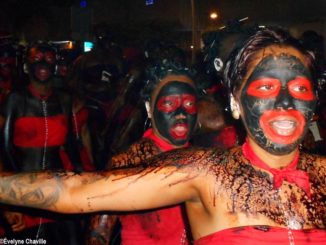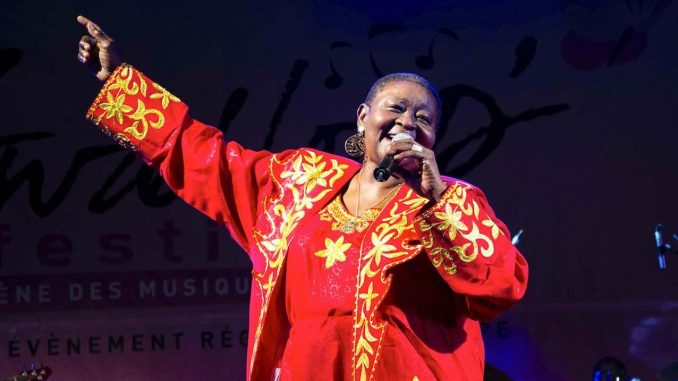
The Caribbean has more than 200 festivals. Almost all the islands have several festivals, obviously, every opportunity is good to create an entertainment. These meetings, which are usually annual, cover a very wide range of fields: music, cinema, tradition, theater, cooking, dance… If the neighboring islands use their festivals to promote their territory abroad and to earn foreign exchange, Guadeloupe is content with organizing festivals for Guadeloupean people.

In this plethora of festivals, some are rooted in our area and even are necessary. Besides their economic aims for the organizing countries, they have the merit of strengthening the cohesion of the Caribbean peoples through culture and history.
This is particularly true for the Caribbean Festival of the Arts which is one of the largest popular events that cements our peoples’ sense of belonging to our region. Established in 1972 in Georgetown, Guyana, and now organized every two years, Carifesta will celebrate its 13th edition from August 17 to 27 in Barbados with over 3,000 artists and artisans from about fifteen countries. The Barbadian government plans to invest 6 million Barbadian dollars but hopes to recover costs thanks to the thousands of visitors.
The Festival del Caribe – Fiesta del Fuego which will celebrate its 37th anniversary in Santiago de Cuba in July 2017 also participates in the union of the peoples of our geographical area. This great gathering of all the Caribbean islands and Latin American countries is an opportunity to participate in symposiums on very serious topics, to listen to music and to see traditional dances. Every year, a country of the Caribbean or Latin America is the guest of honor of the event. After Ecuador in 2016, this year, the popular culture of the island of Bonaire will have this special place.
There are smaller festivals that enhance the history and tradition on some islands. This is the case of the Accompong Maroon Festival. Accompong is this small town located west of Jamaica where, in 1739, maroon slaves signed a treaty of peace with the British, granting them a semi-sovereignty over the territory. This agreement is still valid and the locality which is a kind of “nation within a nation” prides itself on not registering any crime and is a popular tourist destination. The festival features traditional songs, dances and storytellings as well as good Jamaican food.
Another examples are : the Tobago Heritage Festival established in 1987 to preserve the African heritage; the Nine Mornings Festival from St. Vincent and the Grenadines whose creation date is December 1st, 1913 but that dates back to the period of slavery; the Festival Nacional Indígena de Jayayu in Puerto Rico, founded in 1969 to remember the Taino Indians legacy.
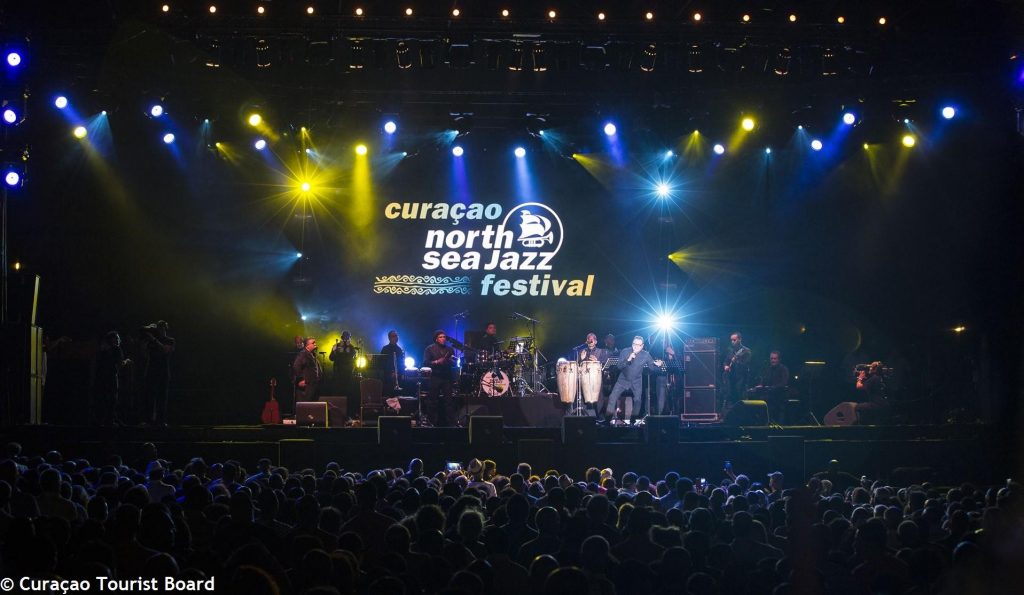
The great popularity of music festivals
In addition to tradition and heritage, cinema has become prominent in the world of Caribbean festival, notably in the Bahamas, Cayman Islands, St. Barthelemy, Barbados, Puerto Rico, Cuba, Curaçao, Aruba, Guadeloupe, Martinique, Dominican Republic, Jamaica …
Culinary festivals are also experiencing a real boom in our region in order to enhance the local food considered to be better for health.
But, the most popular festivals are those that are dedicated to music. There are a great number and take place all over the region: when a festival ends, another begins.
Their main objective besides offering artists’ or bands’ songs: to gain the maximum money. However, it is difficult to criticize public or private organizers of festivals when we know that the large agricultural cultivations that made these former colonies very rich and allowed the inhabitants (among them a majority of descendants of slaves) to “live” have almost completely disappeared. In addition, many islands do not house significant mineral resources, so tourism and entertainment have become new economic sectors.
Thus, some blogs do not hesitate to rate, to classify the festivals. In January 2016, Travelwith2ofus even wrote that it was necessary to see (only) 7 music festivals in the Caribbean: Aruba Caribbean Sea Jazz Music Festival (2007); Tobago Jazz Festival (2009); Saint Lucia Jazz & Art Festival (1991); Saint Kitts Music Festival (1997); Curaçao North Sea Jazz Festival (2010); Dominica World Creole Music Festival (1997); Jamaica Reggae Sumfest (1993). We do not know if its authors (Nikki and Simon, two tourists who travel and tell what they saw) attended all the Caribbean festivals before making this choice or if they received some gifts during their stays…
These music festivals so-called “commercial” usually invite major international stars (very often American) to have fame. This choice, of course, requires large fees and very substantial budgets. A brilliant mix is made with Caribbean artists who are sometimes world famous (with important fees too) and artists from the host island.
So, the competition between the music festivals can be very fierce and some of them are today in the “cemetery of festivals”…
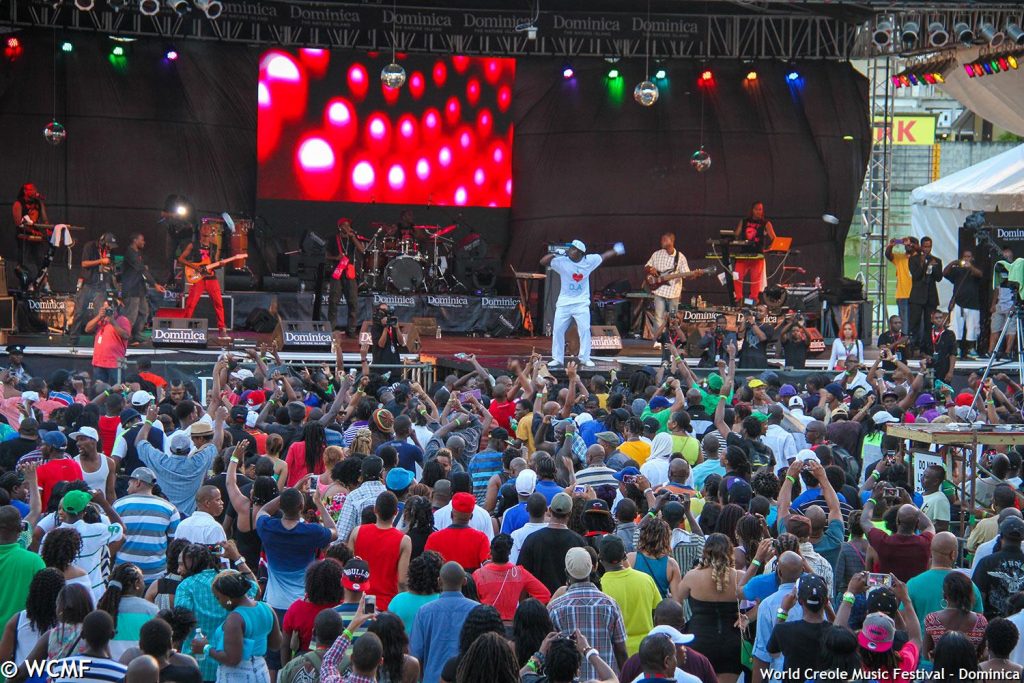
Guadeloupe and Martinique, prime targets
Some English-speaking islands implement a genuine marketing plan to sell their festivals abroad.
Among them, there is Dominica. Indeed, each year “the island of 365 rivers” sends its delegations to Guadeloupe and Martinique several months in advance to present at press conferences the World Creole Music Festival, created in 1997. Then, for weeks, media on both French islands broadcast advertisements offering packages with transport tickets, concert tickets and hotel rooms. The organizers do not forget to include in the festival programming Guadeloupean or Martinican artists what is an additional reason to go to Roseau at the end of October. By this large major promotion campaign, Dominica which is situated between these two French islands and is often confused with the Dominican Republic, also hopes to attract to its territory tourists staying in Guadeloupe and Martinique.
It must be said that Guadeloupe and Martinique are coveted in the Caribbean. In November 2016, the Tourism Development Company Limited (TDC), responsible for developing and marketing tourism products by the Government of Trinidad and Tobago, writes this after its delegation’s visit in both French islands : “The decision to target the French Caribbean was based on several factors. Martinique and Guadeloupe report higher per capita GDPs than almost all other economies in the region. With populations of 386,000 and 403,000 respectively, the residents on these islands have significant spending power(…)”

The financial profitability of the festival
Other islands such as Saint Lucia also set up campaign of seduction in the direction of these French Caribbean. It was the case during the famous Saint Lucia Jazz and Arts Festival that received on its stage a huge number of US stars and had a partnership with the American channel BET, which contributed to its international renown. The new government, elected in 2016, reduced the budget for the music festival that took place from May 12 to 14 and included it in a broader event until November, because 5 or 14 million dollars (we do not exactly how much) invested annually before “were not profitable”.
The St. Kitts Music Festival, which also invites major American stars and Caribbean artists, also tried to make itself known to the Guadeloupeans. After the visit of a member of the government of St. Kitts and Nevis to Guadeloupe last year, local State television (Guadeloupe 1ère) sent a team of journalists to attend the event for a series of reports, in June.
The word was mentioned above: a festival must be “profitable” and it is necessary to go get festival-goers, tourists where they are. Dominica and St. Lucia, for example, understood that very well.
Martinique is also changing strategy. In an interview to Kariculture.net about the Martinique Jazz Festival, the artistic director told us that Martinican public organizers want to improve the communication of their festivals at national and international level in partnership with the Tourism Committee, travel agencies and airlines “to set them at a higher level”, so that they become more known and profitable.
Cuba created a specialized agency called Paradiso which is responsible for selling its festivals and other cultural events in packages to foreign tourists.
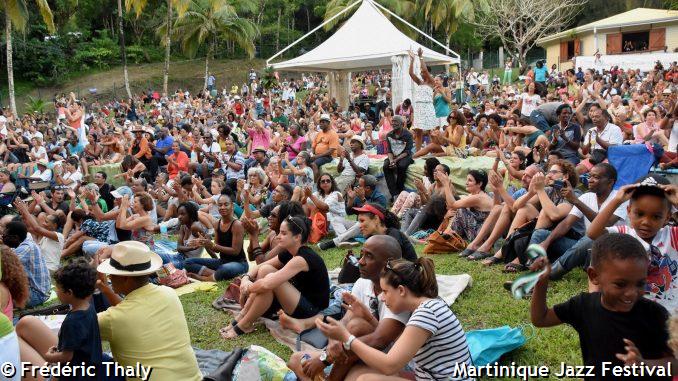
Guadeloupean festivals for Guadeloupean people
It is clear that Guadeloupe has not yet sufficiently understood the question of profitability of festivals.
While it is true that the archipelago organizes quality cultural events, including festivals, there is really no marketing policy abroad to make them profitable. In actual fact, Guadeloupe organizes its festivals and other cultural events for Guadeloupean people and that is fine if tourists on the island at that time want to be there… As a Departmental Councilor recently said on the radio about the cultural event “Fò An Fanmi”: “We were 7,000 spectators last year, we have to be 8,000 this year!”. In short, 8,000 Guadeloupeans.
Public subsidies (Guadeloupeans’ money) are used to organize festivals, Guadeloupean people who represent the vast majority of the festival-goers pay again to attend the festivals.
In sum, Guadeloupeans’ money is just recycled locally and if sales have increased for some traders, everyone is happy…
Advertising campaigns target the local population. They are made through 3 main traditional local media : State radio and television (Guadeloupe 1ère), the most important private radio station (RCI) and the only local newspaper now in major financial difficulties (France-Antilles). The few private television channels and news magazines collect a few crumbs from this advertising budget. New media, especially internet news sites like Kariculture.net, are ignored while they have a Caribbean, an international reach. If this preference in the choice of the media can be understood for private cultural events organisers, how can we understand this when it comes to public authorities specially the Regional Council of Guadeloupe which claims to like start-up as well as modern means of communication?
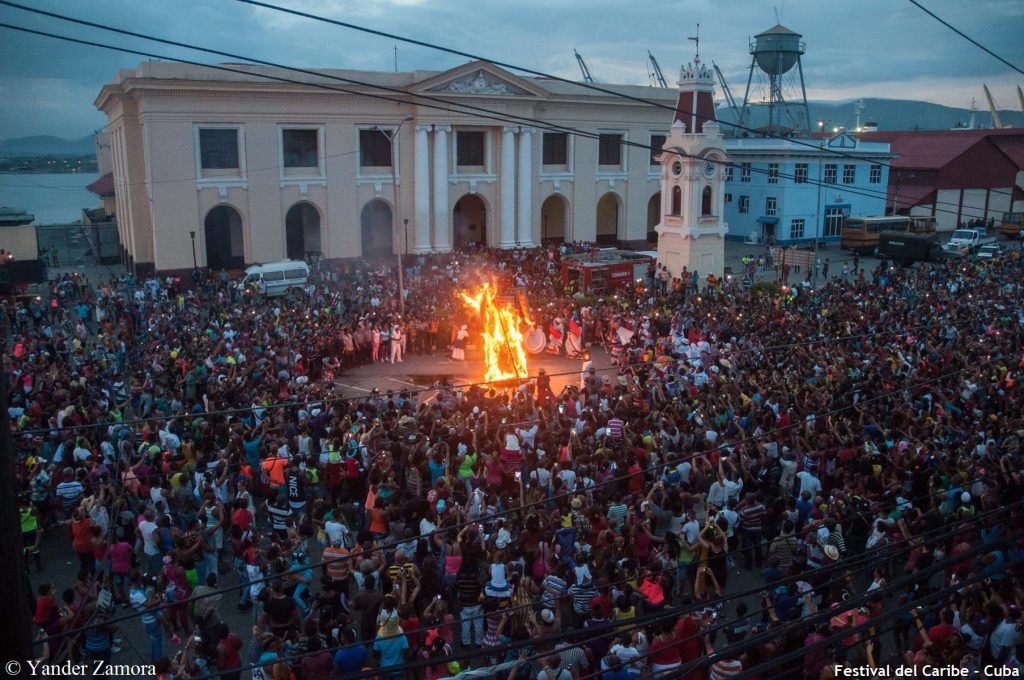
A little-known Guadeloupe in the Caribbean
Besides, huge sums are spent to pay foreign stars and there is no counterpart for the majority of the Guadeloupean artists who languish on the island…
Guadeloupe which tries more and more to become integrated in the Caribbean basin believes that it is well known in the Caribbean because it manages and “distributes” European funds for cooperation with nearby islands and welcomes on its territory economic migrants from Haiti, Dominican Republic, Dominica etc. But in reality, the large majority of the Caribbean people does not know where is located the island, often it is situated in Mexico. So when you travel in the Caribbean, it is better to have a map in your bag to show where is Guadeloupe…
It is clear that some organizers forget that, despite their standard of living lower than ours, these islands have a middle class, people who have the financial means to come to Guadeloupe, to attend our festivals or major cultural events and to know us.
Among the oldest festivals of Guadeloupe, we can quote: the Festival de Gwo ka in Sainte-Anne, which will celebrate its 30th anniversary next July. Much awaited only a few years ago, this annual musical meeting almost went unnoticed last year when many people thought that its organizers would take advantage of the inscription of Gwo ka on the World Heritage List in November 2014 by Unesco to boost it ; the Festival Terre de Blues will celebrate in June its 18 years. It is a festival that would have already disappeared without the public subsidies from the 2 major local authorities of the archipelago (Regional Council of Guadeloupe and Departmental Council of Guadeloupe). As for the Gwadloup Festival, created by the former team of the Regional Council, it was buried since the new elections in 2016 ; the Festival International de Zouk never reached the popularity it deserves when our music is played and danced around the world.
When European, American or Caribbean festival-goers will buy their pakages (car, hotel room, restaurant, concert tickets or excursions) several months in advance from their country, the Guadeloupean festivals will have good progress towards fame and profitability.
To do this, promotion campaigns and attitude should to be changed in Guadeloupe.

